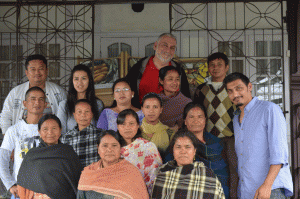Members of the Agroecology Learning Circle Jatah Lakadong village in East Khasi Hills shared the findings of their experiments with MBMA team
A knowledge-sharing session was held at Jatah Lakadong, East Khasi Hills on the 17th of February 2023, as part of the “Empowering Indigenous Communities through Agroecology Learning Circles (ALCs) for resilient, integrated and innovative natural resource management” innovation project initiated by NESFAS and with funding from MBMA as part of an Innovation Grant under the World Bank aided “Community Led Landscape Management Project (CLLMP)”, for supporting the scaling up of innovative practices to enable communities to better manage natural resources.
The event was participated by team members from NESFAS, MBMA, community members, village council members, SHGs and the ALC farmers showcased the diversity of crops cultivated in their kitchen gardens, bun and wild edibles seeds and soil types found in the village.
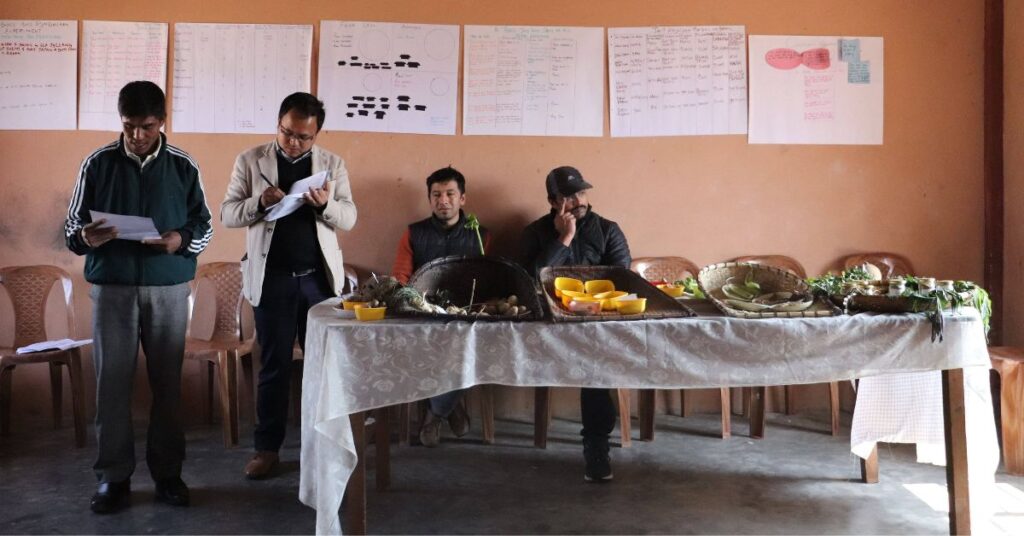
Mr. Seinglung Mukhim, Secretary, Jatah extended his welcome to all the officials and participants, stating that the event has been organised to showcase the work done by ALC members of the community. “We need to come together and work to revive and preserve traditional farming systems,” shared Bah Seinglung.
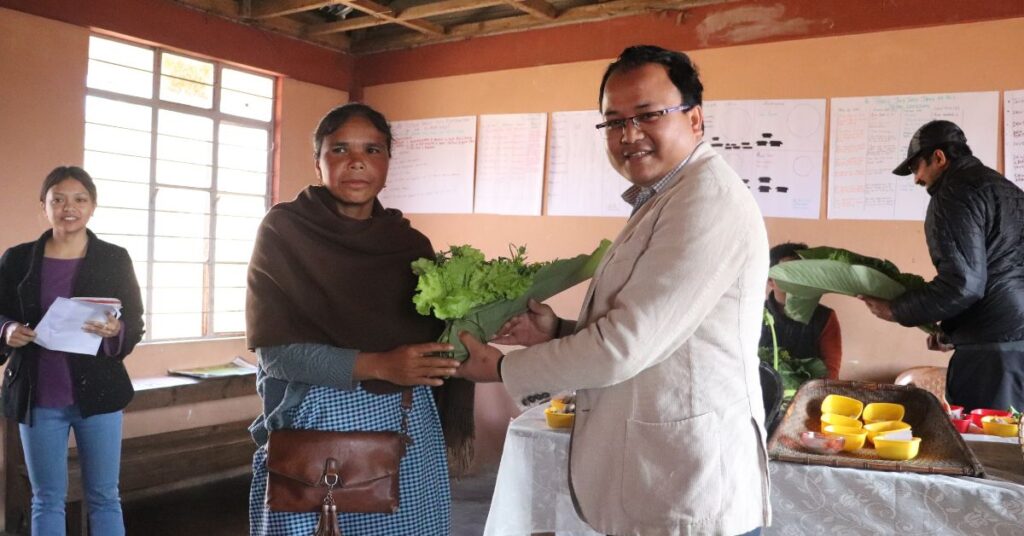
Mr. Pius Ranee, Executive Director, NESFAS, in his short speech expressed how much of an honour it is to showcase the work NESFAS does with its partner communities. He reiterated that working with ALCs is imperative as there is much knowledge in communities. He also shared his hope of further collaborating with MBMA for more projects stating that ALCs are key in bridging the gap between modern knowledge and traditional knowledge.
An overview of the work that has been conducted in Jatah highlighting the key activities of the community was presented by Gratia Dkhar, Lead Associate, NESFAS. Mrs. Antilest Suting, farmer from Jatah Lakadong, on the other hand shared the findings of the experiments that have been carried out under the Jatah ALC in regards to finding viable solutions to replace the use of chemical inputs in the farming system especially in the bun and paddy food production systems. The members have experimented on cultivating potato using farm manure and biopesticides from to substitute use of urea and chemical pesticides. She shared that members observed little difference between potato harvested from control and treated plots. While there is a reduction in yield, the expenditure on inputs was largely reduced in doing organic cultivation.
ALC member, Mrs Otilia Mukhim, shared, ” we will continue to preserve traditional farming and seeds that are available in our community. We will also move forward to make organic biopesticides for a chemical-free community while encouraging and promoting school and kitchen gardens”.
Another ALC member, Mrs. Drina Nongrum, stated that the ALC are also looking for means to upscale their traditionally grown products so that they can sell them to the markets weekly.
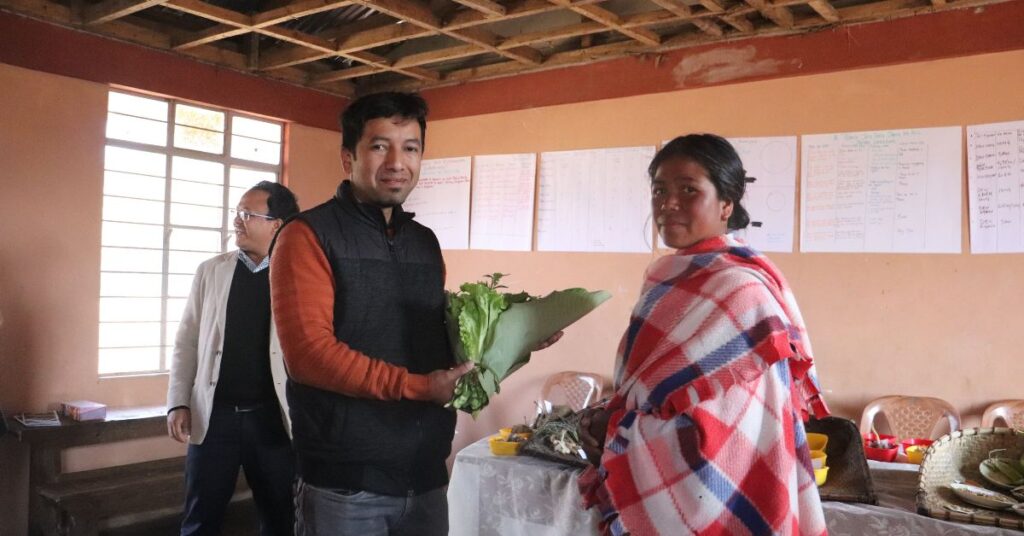
Mr. Wankit Swer, General Manager, MBMA, shared that he was elated and happy to see the community’s hard work, adding that “Small works undertaken by the community have made huge impacts for everyone”. He urged everyone to contribute one percent more in order to drive the project’s mission. “Let us carry this message to others and improve local farming as well as local food,” he said. He concluded with words of gratitude to the Jatah community and the NESFAS team sharing his hope that MBMA, NESFAS and the community can further continue working together.
Mr. Gunanka DB, IFS, Additional Project Director, CLLMP, MBMA shared his amazement at the level of participation of the community members of Jatah stating that this active participation will encourage MBMA to help scale the initiative along with NESFAS’ help in the future. He called for active participation and enthusiasm to continue stating that there should be more seed banks to store and propagate seeds within the neighbouring villages considering that the demand for organic products in the market is huge. “If we all work together it will all be a success and they should spread this message to their fellow farmers,” Gunanka concluded.
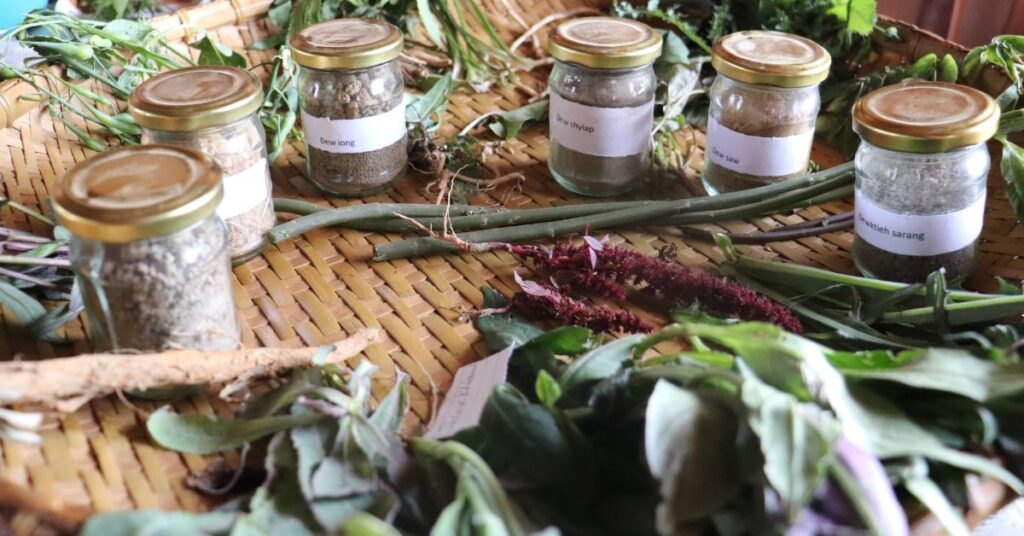
The programme was followed with a visit to the kitchen gardens of a few ALC members which harboured a rich diversity of crops, integrated with animal husbandry and also a place where several wild edibles are also conserved. The community shared that this initiative has contributed to the nutritional diversity of households and also to household income.

